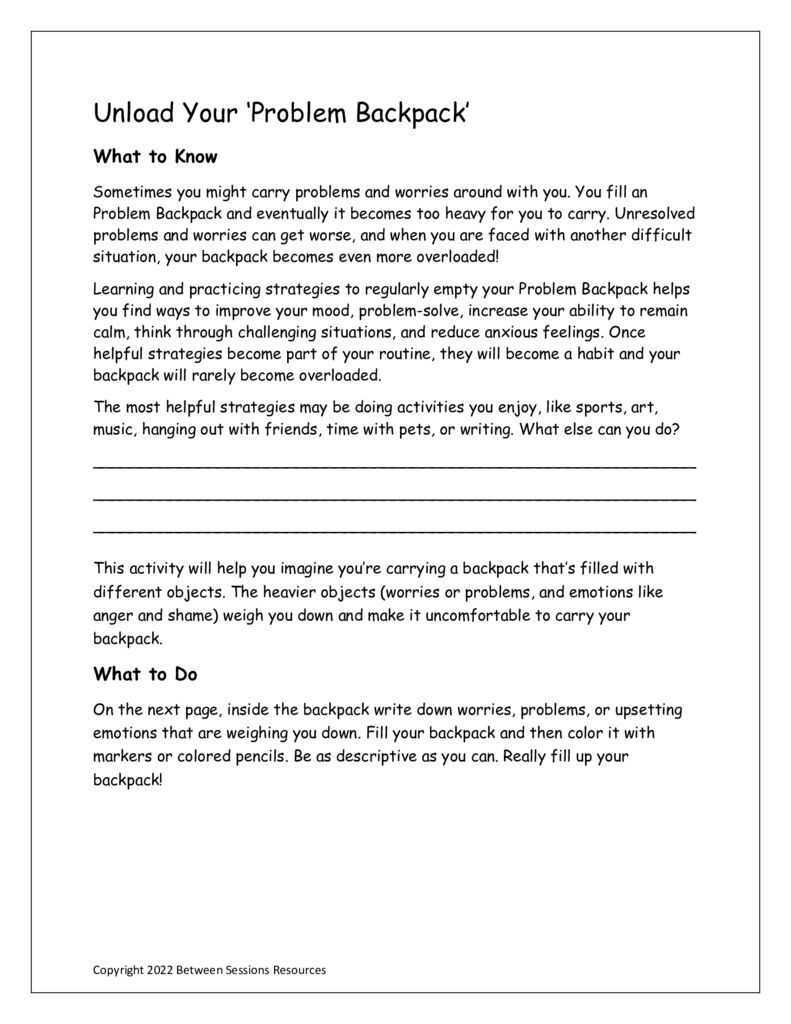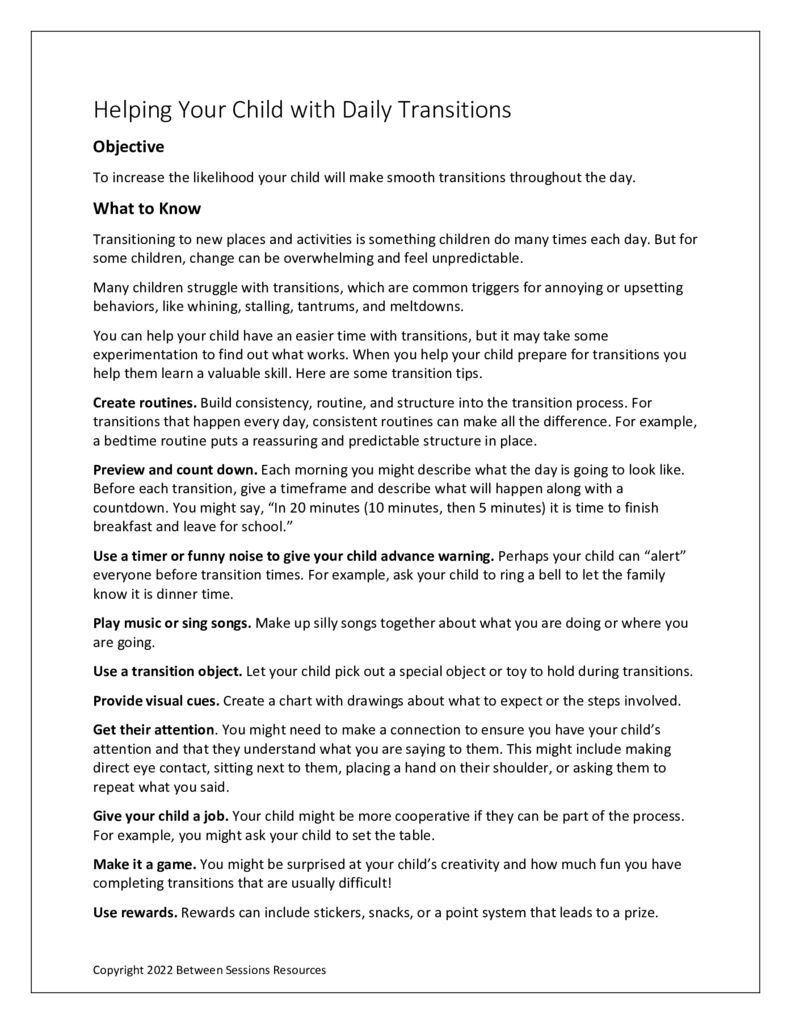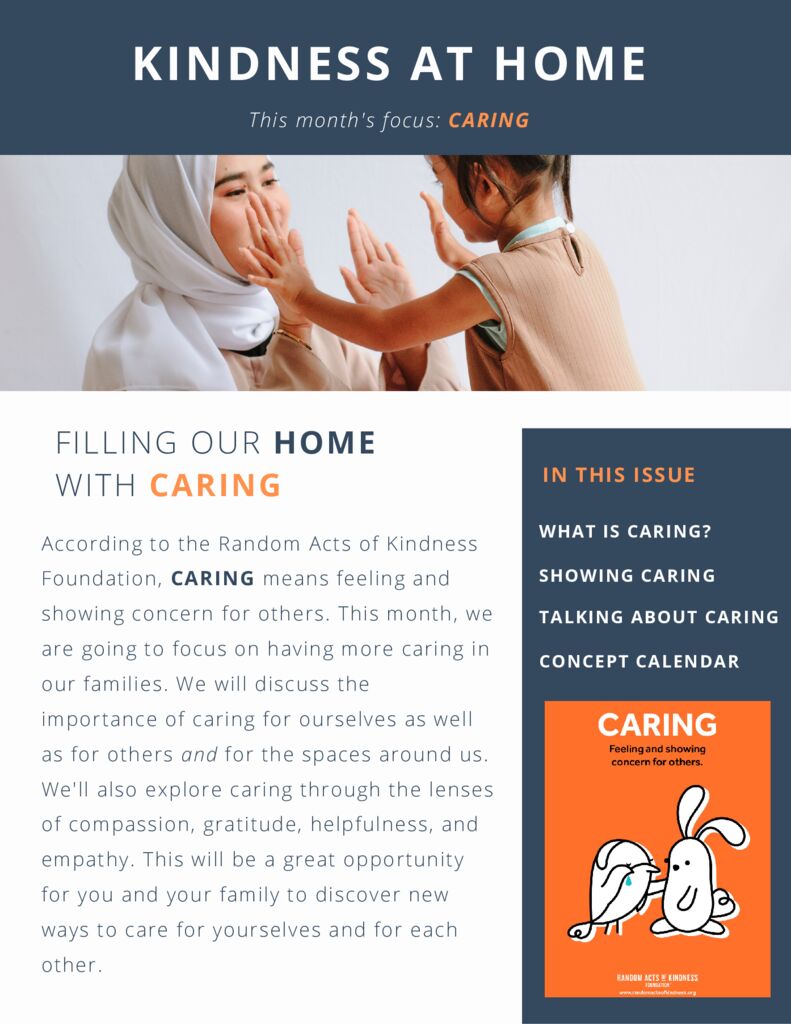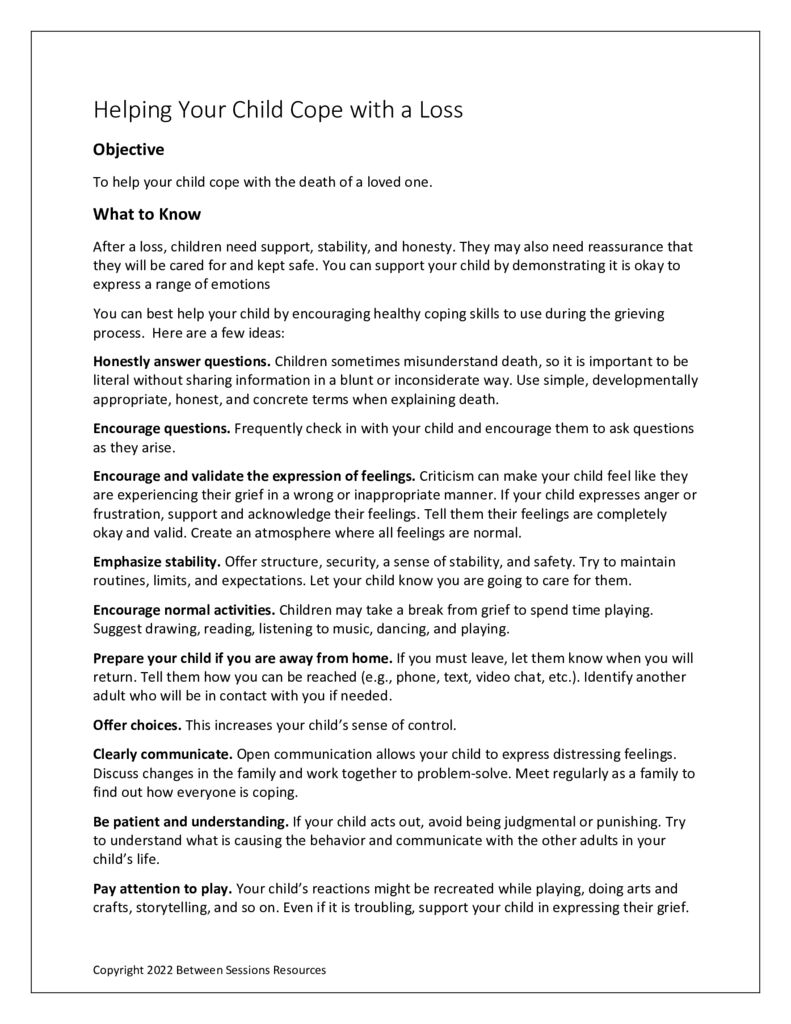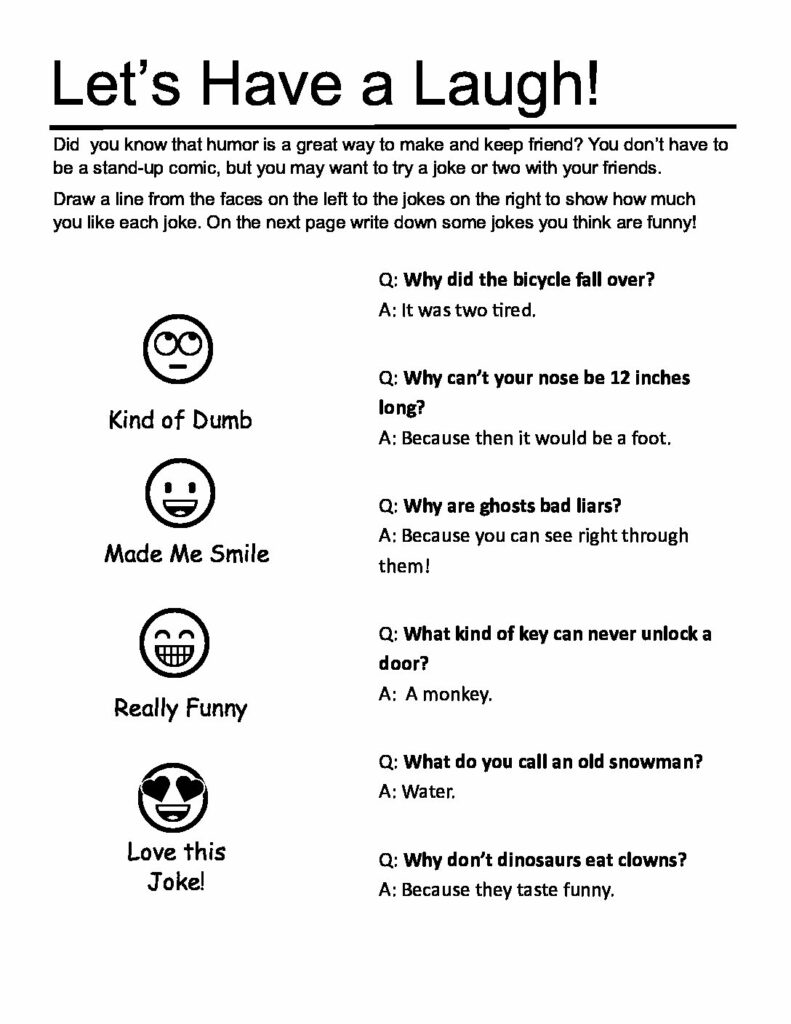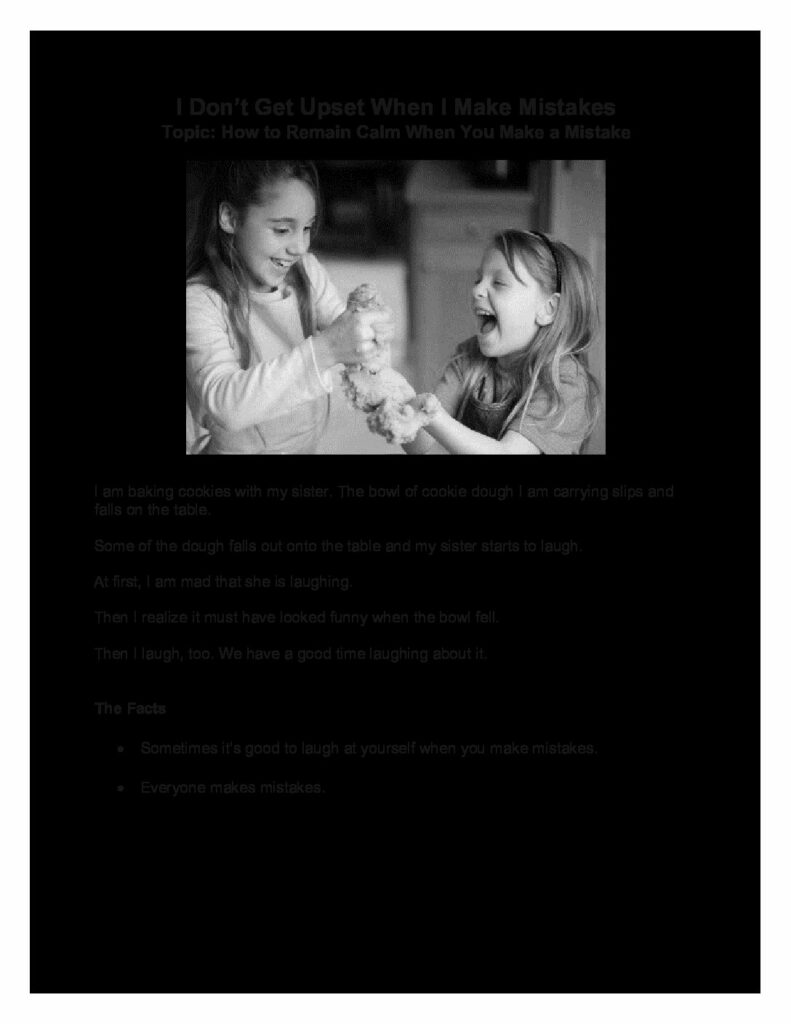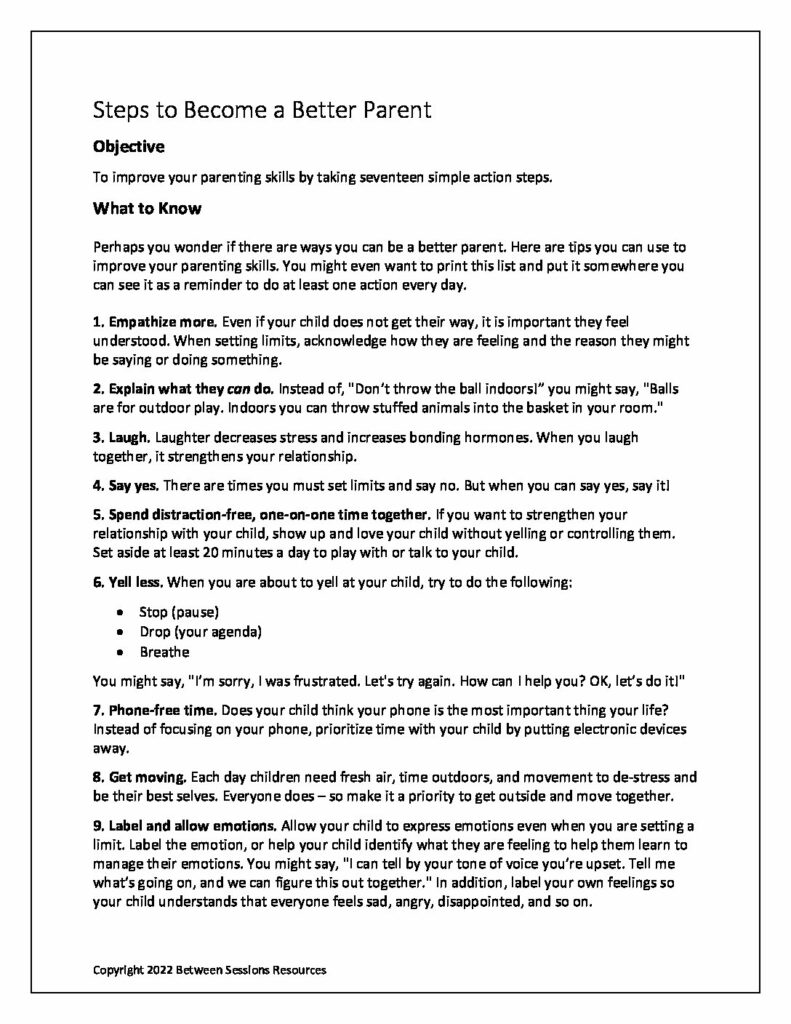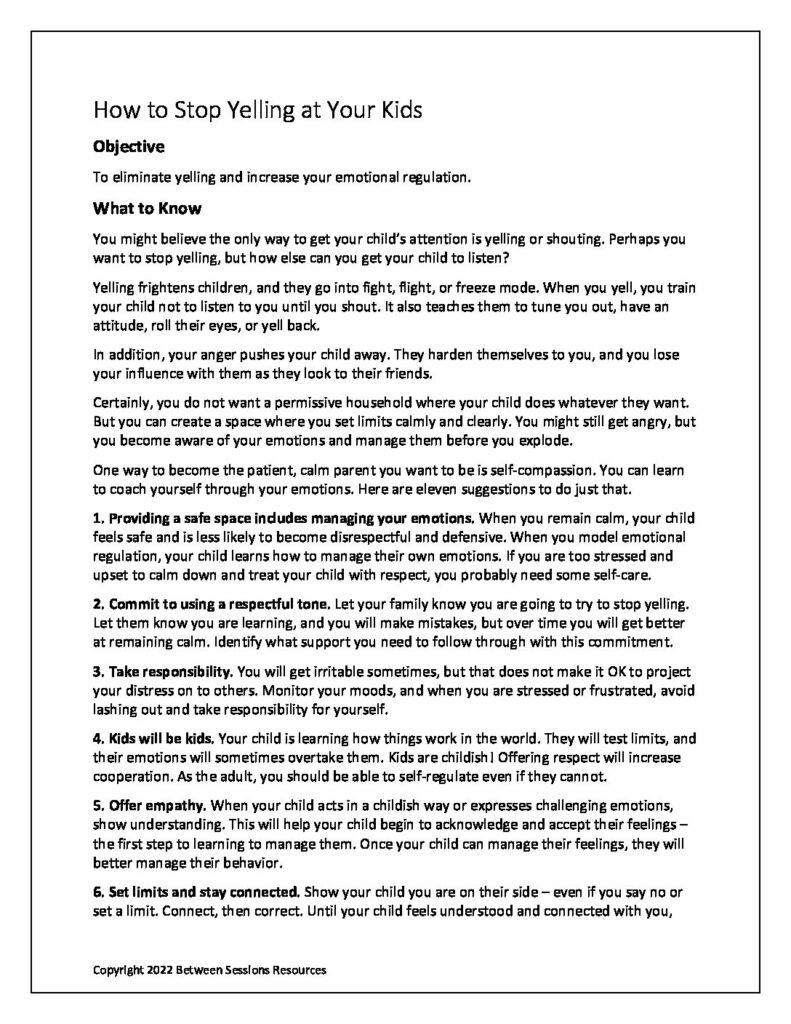Children learn best through play and we’ve kept this in mind while designing these original therapeutic activities for children, including worksheets, stories, and therapy games. Print these tools out for use in the home or classroom or use them in a counseling session.
Use the navigation links on the left of this page to view tools in a specific category. Or use the search function at the top of this page to find the exact tool you are looking for.
If you are looking for something you can’t find on this site, please let us know by clicking here and our team of writers, graphic artists, and therapists will custom design it for you.
This worksheet asks kids and teens to think about the problems, worries, and upsetting emotions that are “weighing them down.” It uses the metaphor of a Problem Background to help kids and teens identify the thoughts and feelings that are causing them problems and how to let them go. (0622 , depression, anxiety)
This worksheet is designed to help parents of children who have a difficult time with daily changes that triggers tantrums, whining, and meltdowns. Twelve practical suggestions are listed for parents to try, including: making transitions a game, using positive reinforcement, and providing a transition object to teach kids self-soothing. A chart is provided to help parents keep track of which activities are most effective. (0522, parenting, ASD, Autism, ADHD, inflexible, behavior problems)
What could be more important than caring? This tool by RandomActsofKindness.org is designed to give families practical ways to support caring for others as well as self-care in the home. (0422, emotional intelligence, caring, self-care)
This worksheet for children and young teens explains how their body reacts to fear or perceived danger. (0322, fear, phobia, mind-body, anxiety)
This worksheet is designed to give parents an overview of things they should do, and not do, in helping their children cope with a significant loss. It includes a family drawing activity to children talk about their feelings. (0322, loss, grief, mourning)
Humor is an important emotional intelligence skill and an important part of making and keeping friends. This worksheet asks children to jokes according to which are funny and which are not. It also asks them to write down jokes that they think are funny. (0222, humor, fun, play, emotional intelligence, social skills)
This short social story tells about a girl who finds a way to still have fun when she makes a mistake while baking with her sister. The worksheet includes follow-up questions about accepting and learning from mistakes. (0122, social stories, Autism Spectrum Disorder, ASD, social skills)
This worksheet summarizes 17 key points in becoming a better parent, like: following through, monitoring screen time, asking questions, answering questions, and more. There is a brief description of each tip and a chart for parents to monitor which tips are most helpful. (0122, parenting)
This worksheet is designed to help parents who regularly find themselves yelling and shouting at their children. Yelling is not a form of discipline and in the long run, just pushes children away. There are 11 strategies to try when yelling and shouting is a problem along with questions to help parents gain insight into their behavior. (0122, parenting, behavior problems, family therapy)
This worksheet teaches children that people get angry to different degrees and in different ways. (1121, anger management, anger control, temper tantrums)

